Raising Bilingual Children: 5 Families Share Their Stories
Inside: Insights from multilingual families in raising bilingual kids.
Parents face hundreds of decisions as they raise their kids, along the way. Multilingual families face even more options: One parent, one language? Minority language at home? Only ever answer the kids in Spanish? Keep it casual and let them speak what they wish?
These decisions weigh on us because they affect the fabric of everyday life. We want to set them up for future success, while creating strong bonds and a happy home life. Which way is best?
As I’ve gotten to know hundreds of families through my blog, I’ve come to the conclusion that there is more than one path to multilingualism.
That doesn’t mean every approach out there will work– most of us know of families who didn’t pass on a second language to their kids, even with two fluent parents. Raising bilingual children requires an intentionality and follow-through that isn’t always automatic.
Most families will need to sit down and take into account all kinds of details: personalities, school options, community, extended family, and even the bond between parent and child will all affect each family’s plan.
Because my own kids are still young, I hesitate to offer up too much advice just yet– we’re still getting started, really! So I reached out my Spanish Mama community on Facebook, and asked families with older children (or bilingual adults themselves) to share their experiences. It’s been fascinating and an absolute delight to read their stories!

Related: 5 OPOL Families Share How They Make It Work
For our first four interviews, I broke down their responses and am sharing them by section. The last interview, with Silvia, is in Spanish and flows so nicely I decided to keep it all together. You can get a peek into her family’s story at the end. Grab a cup of tea or coffee and settle in for this peek into growing up bilingual, or raising bilingual kids.
MEET OUR MULTILINGUAL FAMILIES
Spanish Mama: Please introduce yourself and your family!
Nikki: I live in Northern Virginia with my husband and my 3 children aged 7, 5, and 2. I began teaching HS Spanish in 2002. I am currently mostly home with my young children but I do teach one Spanish class at the local community college. That has been interesting and it has helped to keep me current with the ever changing pedagogy!
I grew up in a bilingual home. My father was a peace corps volunteer in Costa Rica in the early 70’s and met my mother. Their language of communication is Spanish. My two siblings and I grew up hearing Spanish being spoken between our parents always. In my case (middle child), I was always very hesitant to speak Spanish to anyone. We would travel to Costa Rica nearly every year, and most family members thought I did not speak! I was very shy and reserved, but the wheels in my head were always turning. Once I started studying Spanish in HS, it’s like it all clicked! I begin to want to speak more and more. 18 years of Spanish saved up in my brain all came out!

Nikki’s Bilingual Family
Evelyn: I’m Venezuelan but my mom is Colombian. I grew up in Caracas but my mom always emphasized the importance of English at home (she and my dad were both bilingual). I learned English formally at school but with a great support at home. I had books, music, and eventually TV available. My daughter was born in Caracas in 2000 and we moved to the US in 2001, she was 14 months old. In 2002 we had a son.
María Patricia: So I was born in Chile 1972, and my mom and I left to Canada in 1976 after the political climate took a turn for the worse, I spoke Spanish at home but quickly picked up English from the environment around me (friends, school, tv, radio etc…). My husband and his family had the same experience, born in Chile raised in Canada, although we didn’t meet until we were in our teens, both our households were Spanish only at home.
Melanie: I live in a rural area in the Northern highlands of Peru. My daughter, husband and I have been here for 4 years—where we have a medicinal plant farm. We make natural health and skin products. Along with our farm and business I homeschool my child. Since relocating to South America, I have been learning Spanish along with my 2 native languages! I have recently begun to blog on my site Adaptivore about my experiences and would be honoured if you have a look.
I am Canadian and I grew up in a French/English billingual home. In Montreal ‘Frenglish’ is a vibrant reality! My mother’s family are francophone and my father is anglophone. I was surrounded by both languages from the start. Although we did tend to favour speaking English as a family. It wasn’t until I attended a French catholic high school that I perfected my French accent.
LANGUAGE FAMILY RULES
Spanish Mama: What guidelines or rules did your family have for what languages to speak at home?
Nikki: My parents encouraged me simply by modeling. They never forced me. I think they just realized that in my own time, I would see the value in it. And I certainly did. I cannot fail to mention the financial sacrifices they made for us to travel as a family to Costa Rica nearly every year of my childhood! This is priceless.
Evelyn: As a parent I always spoke Spanish to my kids since they were born, since I knew they would eventually pick up English when they started school. One fun fact: my daughter would reply in English or Spanish depending on how people pronounced her name: Isabel. When her brother was born, she spoke Spanish to him until he started preschool. After a couple of months she figured out he understood English and switched. However, they remained speaking Spanish to us. I don’t remember being strict about it but always consistent. I read books, played music, and played videos in Spanish most of the time. Sometimes I would rephrase something to help them express themselves. Notes and now text messages are always in Spanish.
María Patricia: My mom while vacationing in Chile passed away after finally finishing her home there. Her plan was to travel back and forth to Canada, like “snowbird” travelers, avoiding winters. After her passing, we inherited her home and we decided to try our luck in Chile as my in-laws had moved back there permanently and our three children did not know them. At this point my oldest was 12 years old, followed by my 10 and 7 year old. They did not speak Spanish at this point, understood some of it and had the “gringo” accent if they tried to speak it.
We told them – we were going on an adventure, to move to Chile see if we like it, that since they didn’t know Spanish, we would first arrive let them “acclimatize” themselves to the culture and started a Spanish only at home campaign for 6 months, as the school year was already on its way when we arrived and with only 3 months left of the school year we decided not to enroll them right away, There was no pressure for them to learn or else type of situation. It was a let see what happens type of situation. 6 months later they started school and it was amazing to see how quickly they picked up the language. Their grades were great; although speaking it took longer their understanding of it was obvious due to their grades.
We did not have rules really set up, just based on the direction our lives took, I basically now see how I arrived to Canada not knowing the language but adapting quickly and realise how my kids did the same but with Spanish. 11 years have now gone by; we reverted back to a mostly English speaking household, as it’s just easier for us.
Melanie: There were no rules per say in our household in regards to language, however, there were family members and later friends that only spoke/understood one of the two languages. It was important for me to be able to communicate fluently. My biggest motivator as I mentioned above was high school, I had no desire to be the odd one out with an anglophone accent. Later moving to Peru, especially in a remote area, learning Spanish was a necessity for various reasons both personal as well as for our business!https://c54425b1f9e7e6bb7c9ae6418426c53a.safeframe.googlesyndication.com/safeframe/1-0-37/html/container.html
SPEAKING SPANISH AS TEENS
Spanish Mama: As your got older (or your children grew), how did you/they feel about speaking Spanish? Did your family’s expectations or language use shift?
Nikki: In my case (middle child), I was always very hesitant to speak Spanish to anyone. We would travel to Costa Rica nearly every year, and most family members thought I did not speak! I was very shy and reserved, but the wheels in my head were always turning. Once I started studying Spanish in HS, it’s like it all clicked! I begin to want to speak more and more. 18 years of Spanish saved up in my brain all came out! As I approached adolescence and realized that I had an advantage over my peers in Spanish class, I felt proud that my language skills were something that set me apart.
Evelyn: Both of my kids like being able to speak Spanish and I never perceived any embarrassment from them. Actually, it was almost a “secret language” for us. Keep in mind that we lived in the Boston area and after 2007 we moved to Albany NY. When we traveled to a Spanish speaking country they wanted to be addressed in Spanish and did not like being perceived as “Americans”. At school they have been both successful in languages. My daughter graduated last year and took AP exams in English, Spanish, and French with top scores in all. She’s currently a Freshman at Fordham University and plans to major in International studies. She loves to talk to people from other cultures and plans to take more languages (Yes, I’m a proud mama). She received awards as a Multicultural Achiever from SUNY Albany and was recognized as a Hispanic Scholar by the College Board. In other words, all this bragging helps me prove that being bilingual was a benefit to her education and NEVER a handicap.
Melanie: My parents (my mother especially) were certainly pleased that I chose to study in French. There is undeniable pride in our roots and language is an integral part of that. I learnt later how much being bilingual was an important representation of my heritage. It was always made clear that the quest for fluency was my own choice and not forced upon me. I went from an Immersion program to a French program. I remember that my social circle expanded much more so than had I remained in Immersion. Studying advanced literature also gave me a vocabulary that enriched my ability to express myself.
TIPS FOR RAISING BILINGUAL KIDS
Spanish Mama: What do you feel that you/your parents did well? Any tips for other families?
Nikki: My parents were CONSISTENT! As a parent now trying to raise 3 bilingual children in a language that is not my 1st, I give my father an enormous amount of credit for speaking in his second language for 40 years! Although he did not speak to myself and my siblings in Spanish, the constant exposure from both him AND my mother were so integral in my siblings and me becoming bilingual. I encourage other parents (including myself) to not give up. I have thought about giving up every day for the past 7.5 years but I keep putting one foot in front of the other because I have reaped the benefits myself.
Evelyn: My advice is to be consistent and not discouraged by people that say two languages are confusing. Also, be firm when talking to your kids and make it clear since they’re little that Spanish is the language spoken at home. Music, videos, and stories are also a great resource to keep it interesting.
María Patricia: I think the best advice for other family is to not pressure them, we tried to make it fun and in our case it was all an adventure.
Melanie: I think that in our household what worked well was that there was no pressure. My brother and I both found our own motivation to become perfectly billigual. Another positive was that I was exposed to media and culture in both languages daily: television, music, theater. Not just translations but native speakers. Both strategies I would recommend to support any language learner or parent thereof!!
SILVIA’S STORY: PERSISTENCE IS THE KEY
Tuve la dicha de nacer y crecer en el bello país de Guatemala. Soy secretaria oficinista por profesión, pero una apasionada maestra de corazón. A los 23 años, el 29 de septiembre del 2004 la vida me trajo a Canadá junto a mi esposo Santiago, nuestro pequeño José Andrés y nuestra bebita Verónica con solo 3 semanas de edad. 17 meses mas tarde, nuestro pequeño Eric se nació en nuestra familia. Desde entonces nos llamamos thegingerich5.
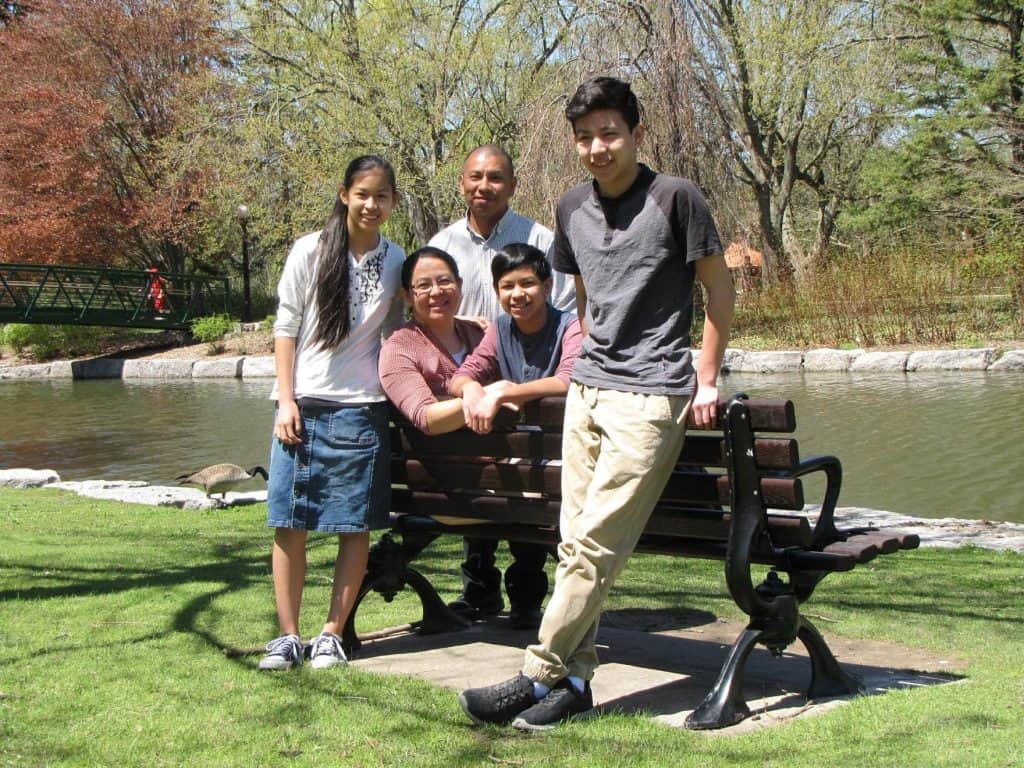
Silvia’s Multilingual Family
Soy guatemalteca, ¡hablo español! Mi esposo también es guatemalteco, eso hace que nuestros hijos tengan sangre chapina corriendo por sus venas. Pero, ¿porqué entonces estoy escribiendo sobre no forzar el bello idioma español en nuestros hijos?
Mi esposo tenia 2 años cuando fue adoptado por una familia canadiense. A los 12 años de edad empezó el arduo trabajo de aprender su tercer idioma. El nació en una familia Kakchiquel en las frías montañas del altiplano guatemalteco. Su primer idioma fue Kakchiquel, después inglés y su tercer, español.
Mi esposo y yo nos conocimos en Guatemala, en un pequeño pueblo en el lejano y cálido Petén. Él dominaba muy bien el español. Yo hablaba cero inglés. Desde el principio mi esposo y yo nos hemos comunicado en español. Entre su familia la lengua dominante ha sido el inglés (aunque todos hablan español por haber vivido en países de habla hispana todas sus vidas).
Tan pronto como nuestro primer hijo nació, mi esposo automáticamente empezó a comunicarse con él en su idioma natal, el inglés. ¿Y yo? ¡En español!
José Andrés tenía 22 meses cuando nos mudamos a Canadá. Su vocabulario tanto en inglés como en español era muy limitado. Las únicas palabras que decía eran agua, bye, mama, papa, y unos sonidos intraducibles para decir gracias y expresar otras necesidades.
La presión comenzó. “Háblenle solo español”, nos aconsejaban unos. “Llévenlo al pediatra”, decían otros.
Mi esposo y yo tratamos de hacer caso omiso a los consejos no deseados de nuestros amigos y vecinos y continuamos comunicándonos entre nosotros en español, y a ellos en nuestro idioma natal.
Desde que nuestros hijos estaban en mi vientre, tuvimos el hábito de leerles tanto en español como en inglés. Nuestros hijos crecieron rodeados de libros en ambos idiomas. Cuando venimos a Canadá nos encontramos con una escasez de libros. Pero no hubo problema, yo me inventé las historias y ellos me rogaban por un cuento mas antes de dormir.
Nuestro hogar siempre ha estado envuelto con el sonido de bellas notas musicales tanto en inglés como en español. Desde el día de su nacimiento nuestros hijos han cerrado sus ojitos al sonido de música y el alarma cada mañana ha sido la música.
Tuve la dicha de preparar académicamente a nuestros hijos en casa antes de enviarlos a la escuela por el resto de sus vidas. Por cuatro años, les enseñé lo básico como los números del 1-10, los colores, las formas y a colorear. Esas fueron pequeñas lecciones muy importante para nosotros pero no nuestra prioridad. Sin saberlo y sin planearlo, en nuestro ser sabíamos que había algo más de alta prioridad que como padres queríamos asegurarnos de inculcarles a nuestros pequeños antes de que hablaran dos idiomas perfectamente o que se formaran académicamente en ambos idiomas. Esa prioridad era los buenos modales, tanto en casa como en la sociedad. Atributos como comportamientos que muestran preocupación y respeto por los demás. Con nuestro ejemplo, les inculcamos el valor de desarrollar empatía por otros.
Les enseñamos con nuestro ejemplo la importancia de darle la bienvenida a personas de diferente razas en sus vidas y en el hogar. Nuestro grupo de amistades esta formada tanto por canadienses con cero español, como por latinos con cero inglés. Así también por canadienses como latinos bilingües, y por aboriginales que aseguran les estamos mintiendo cuando les decimos que no pertenecemos a una de sus tribus!
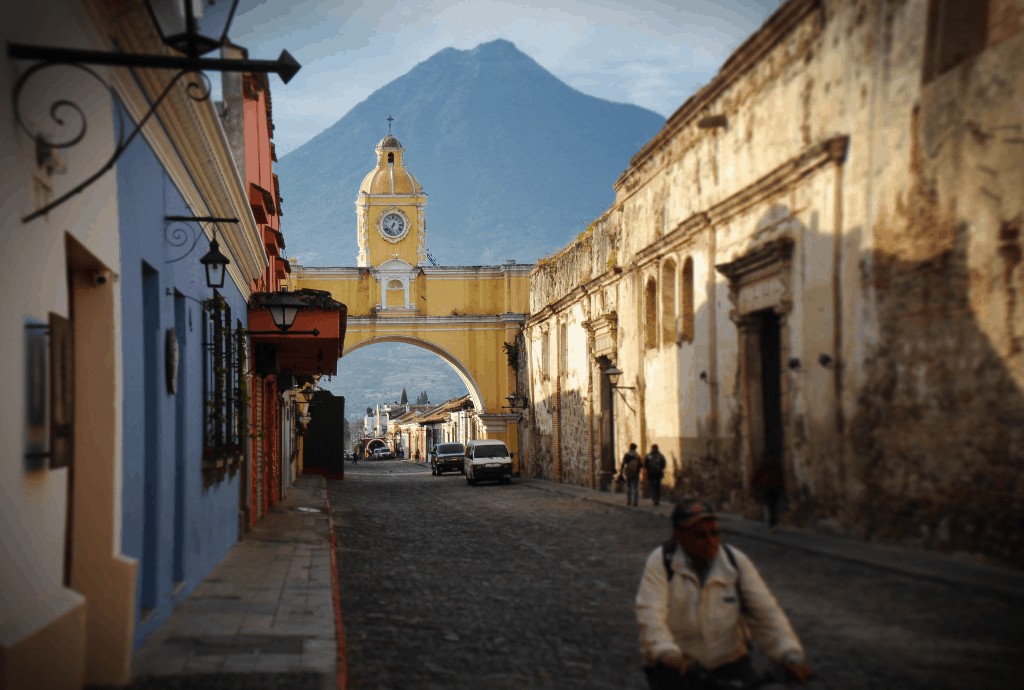
Photo by Jeison Higuita on Unsplash
En Noviembre del 2012 llevamos a nuestra familia a Guatemala por tres meses. Desde que salimos de Guatemala en el 2004, solo habíamos regresado a visitar dos veces por tres semanas cada visita.
Quisimos hacer este viaje por varias razones, y una de ellas era para que nuestros hijos ( a estas alturas de 10, 8 y 6) experimentaran en carne propia la cultura de mi familia, otra forma de vida y la importancia de hablar mas de un idioma, en nuestro caso el español.
Había mucha emoción, pero también mucho temor y preocupación en nuestros pequeños. Nuestro hijo menor no entendía porqué los guatemaltecos no aprenden inglés. ¡La vida sería mucho más fácil para él, decía!
En esa visita encontramos varias respuestas a nuestras preguntas y dudas. Mi esposo estaba completamente seguro que nuestros hijos poseian una cajita en sus cerebros marcada “Guardando para más tarde”. Esa teoría resultó ser verdadera en esos tres meses. Nuestros hijos no solamente se comunicaban con sus primos y nuestros vecinos, sino también ¡vendían golosinas y peleaban como todos en la vecindad!
El día de nuestra partida nuestros hijos lloraron amargamente todo el camino al aeropuerto. Algo había sucedido en esa cajita en sus cerebros. Un hilo en sus corazones había sido para siempre conectado con la cultura y el idioma que sus padres habían tratado de enseñarles y modelarles todos estos años.
Han pasado seis años desde esa experiencia. Nuestros hijos ahora son adolescentes. Hemos continuado haciendo lo que creemos es mejor para nuestros hijos; rodeándolos de español tanto en casa como fuera de la misma.
Por muchos años he estado dando clases de español a individuos y familias que estarán viajando a países de habla hispana. Este año tengo el privilegio de compartir clases de español en la escuela dónde dos de nuestros hijos asisten. Me sorprendí cuando algunos de mis estudiantes en grado octavo, de los cuales mi hija es una de ellos, sabían varios saludos y palabras que les estaba introduciendo. Descubrí un secreto de mi hija: ¡desde primer grado ha tenido un club de español con algunas de sus amigas y ella ha sido la maestra!
No es sorpresa escuchar a nuestros hijos hablando español a toda hora del día no importando en donde nos encontremos. Las palabras y las frases salen libremente y como música llegan a alegrar los oídos de esta mama latina.
Si tuviera que hacer todo de nuevo, no cambiaría nada. Las estrategias han funcionado. Persistencia es la clave.
A huge THANK YOU to our families who contributed to this post! What a treat to get a peek into your family life and stories.
Are you raising bilingual kids, or are a multilingual adult yourself? I would love to feature you in this series! Email me at [email protected] for more information!
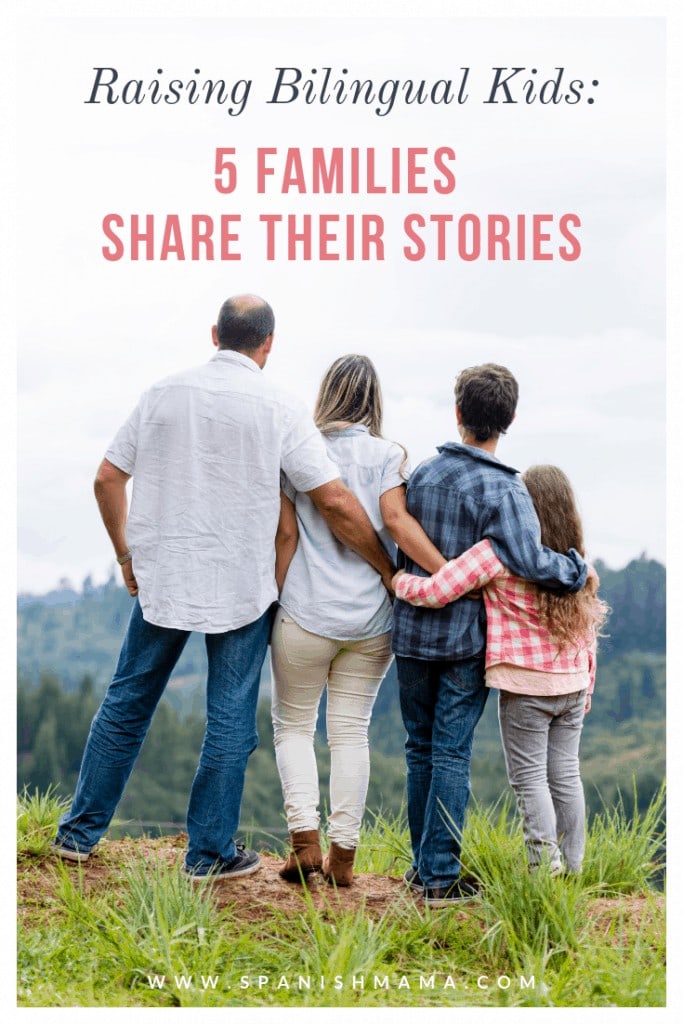



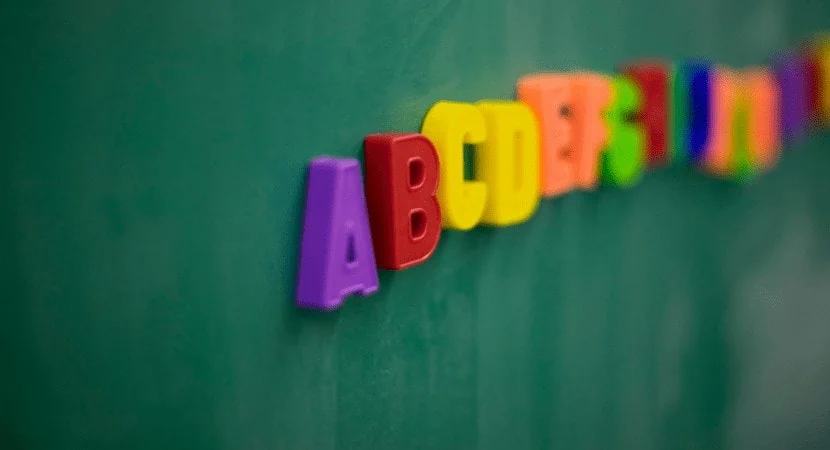


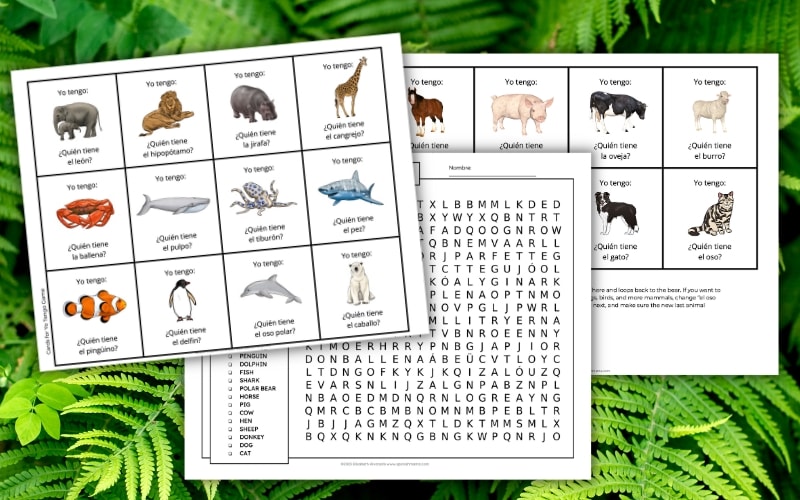
Love this!! Your families could have been the families I interviewed for my book Raising Bilingual Children! They all have similar stories and advise! Congratulations! Best, Maritere